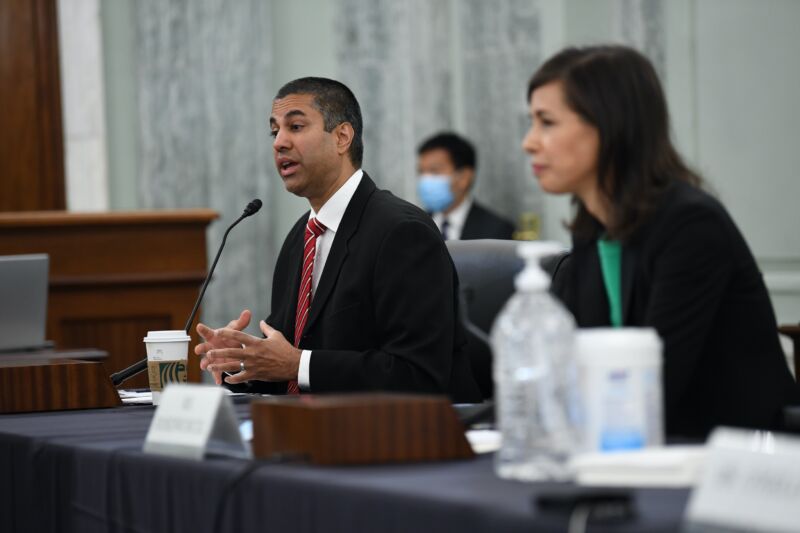
Enlarge / FCC Chairman Ajit Pai and FCC Commissioner Jessica Rosenworcel at a Senate Commerce Committee hearing in Washington, D.C., on Wednesday, June 24, 2020. (credit: Getty Images | Bloomberg)
Federal Communications Commission Chairman Ajit Pai touted inaccurate broadband-availability data in order to claim that his deregulatory agenda sped up deployment despite clear warning signs that the FCC was relying on false information.
Pai claimed in February 2019 that the number of Americans lacking access to fixed broadband at the FCC benchmark speed of 25Mbps downstream and 3Mbps upstream dropped from 26.1 million people at the end of 2016 to 19.4 million at the end of 2017, and he attributed the improvement to the FCC "removing barriers to infrastructure investment." The numbers were included in a draft version of the FCC's congressionally mandated annual broadband assessment, and Pai asked fellow commissioners to approve the report that concluded the broadband industry was doing enough to expand access.
But consumer-advocacy group Free Press subsequently pointed out that the numbers were skewed by an ISP called BarrierFree suddenly "claim[ing] deployment of fiber-to-the-home and fixed wireless services (each at downstream/upstream speeds of 940mbps/880mbps) to census blocks containing nearly 62 million persons." This is an implausible assertion and would have meant BarrierFree went from serving zero people to nearly 20 percent of the US population in just six months. BarrierFree admitted the error when contacted by Ars at the time, saying that "a portion of the submission was parsed incorrectly in the upload process."
No comments:
Post a Comment